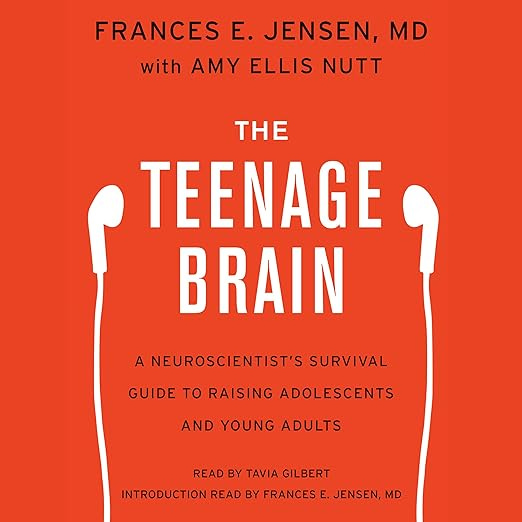Books on College Admissions: The Teenage Brain, by Frances E. Jensen
Explore the science of teenage decision-making and how it relates to college readiness in this book review.
The Teenage Brain, by Frances E. Jensen
Published in 2015
Amazon link
My Rating: 4 stars
Books on College Admissions: The Teenage Brain
Frances E. Jensen is a neuroscientist, professor at the University of Pennsylvania, and mother. It shouldn’t be surprising, then, that this is a very scientific view into adolescent brain development. Nor should it be surprising that many of the anecdotes include stories about her two boys.
The key takeaway: Jensen explains how the adolescent brain is still developing, making it both a time of great potential and vulnerability. Specifically, the prefrontal cortex - the part of the brain responsible for executive functions (such as problem solving and planning), decision making, regulating emotions, and learning - is still transitioning into its adult state. This means -
The teenage brain is highly adaptable, meaning it’s a prime time to learn new skills and habits.
The teenage brain has a heightened emotional response, which can affect decision-making.
The teenage brain reacts differently to stressors and lack of sleep.
Also, FWIW, if you want the very short version of this book - I recommend the TED talk available on YouTube.
How Will This Book Help You?
Have you wondered why…
Teens seem to take unnecessary risks?
"Several studies have shown that children and adolescents generally have the same accuracy, but the reaction times, the speed at which a subject successfully inhibits a response, dramatically decrease with age in subjects age eight to twenty. In other words, it takes longer for adolescents to figure out not to do something."
Teens sleep at odd hours and constantly say they’re tired?
“Scientists have calculated that the average adolescent actually requires nine and a quarter hours of sleep… Only about 15 percent of all American teenagers actually get that much on a regular basis… One reason is that melatonin, a hormone critical to inducing sleep, is released two hours later at night in teenager’s brain than it is in an adult’s.”
Teens have elevated risks of addiction (alcohol, tobacco, drugs)?
“Studies have shown that binge drinking typically begins around the age of thirteen and peaks between ages of eighteen and twenty-two.”
Teens are susceptible to concussions and head injuries?
“Among high school sports with male/female participation - soccer, lacrosse, basketball, baseball, softball, and gymnastics - girls sustain concussions nearly 70 percent more often than boys…”
This book is a scientific explainer for many of the behaviours we observe in teens. Is it directly applicable to college applications? Not exactly - but understanding how and why the teenage brain works can help them (and you!) better navigate the challenges and opportunities ahead.


